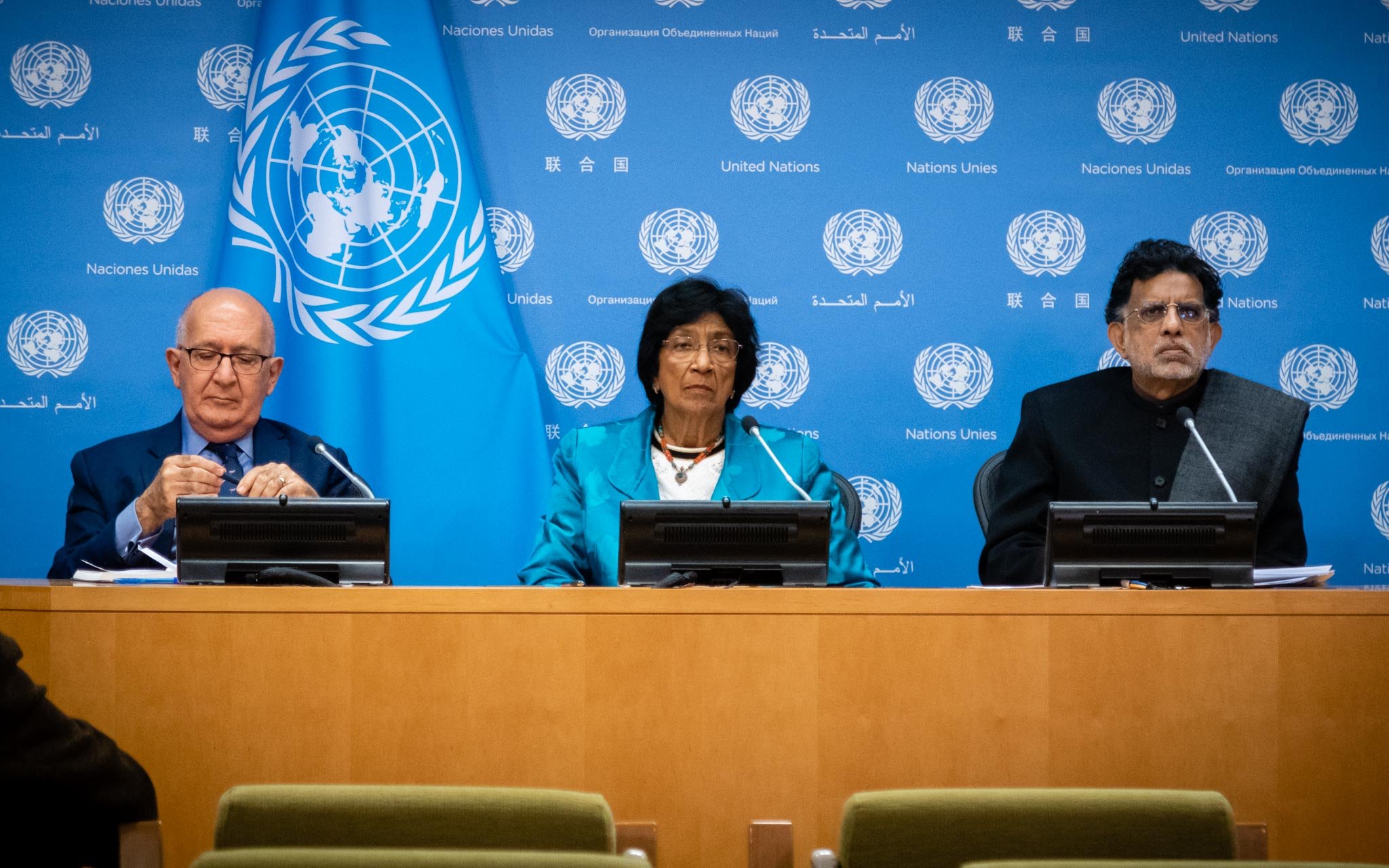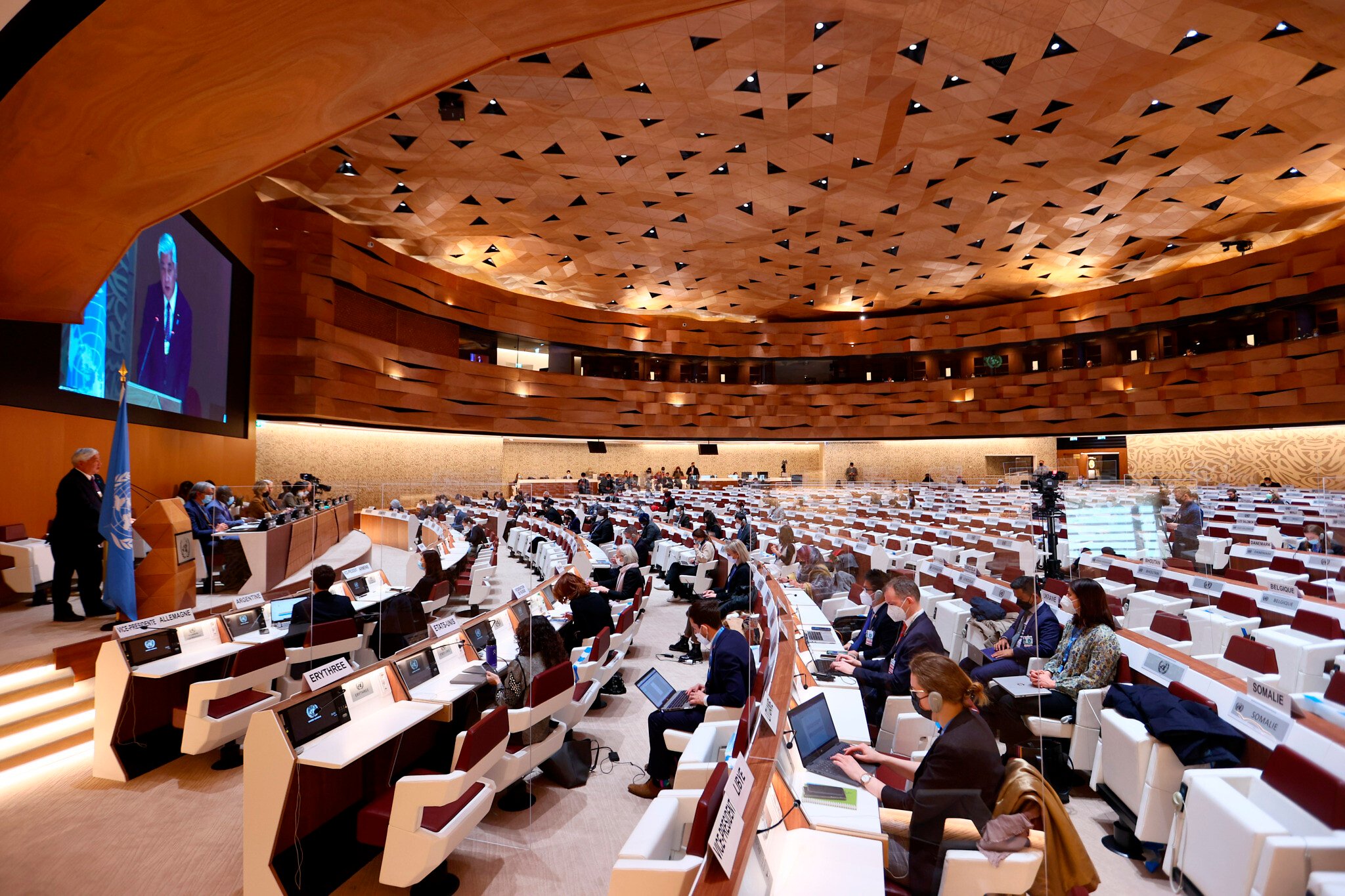



The three members of a United Nations commission tasked with investigating Israel quietly resigned earlier this month.
Navi Pillay, Chris Sidoti, and Miloon Kothari, who made up the UN’s Commission of Inquiry on the Occupied Palestinian Territory, submitted their resignation letters to the president of the UN’s Human Rights Council. The letters surfaced on Monday.
Pillay, 83, the commission’s chair, said she was resigning “owing to age, medical issues and the weight of several other commitments” on July 8.
Sidoti resigned a day later, saying Pillay’s retirement was “an appropriate time to re-constitute the commission,” and Kothari said the group had reached an “understanding” during the previous week.
The letters were posted on a back-end Human Rights Council website and first publicized by UN Watch, a nonprofit monitoring group.
The commission will continue to exist once it appoints new members. Jurg Lauber, the head of the UN’s Human Rights Council, asked the council’s member states to propose new members by August 31.
The commission released periodic reports on the Israel-Palestinian conflict that overwhelmingly blamed Israel. The commission’s most recent report was released in May.
Pillay, a South African jurist, was the United Nations High Commissioner for Human Rights from 2008 to 2014, during which time she frequently criticized Israel’s actions in Gaza.
She chaired the commission of inquiry, which Jewish groups, Israel, the US and other countries have condemned for its alleged bias. It is the council’s first open-ended commission of inquiry, the UNHRC’s highest level of investigation.
The commission overwhelmingly blames Israel for the conflict and accuses the Jewish state of other misdeeds, such as stealing natural resources.
Kothari caused a firestorm of controversy in 2022 when he said that social media was “controlled largely by the Jewish lobby,” espousing a common antisemitic trope, and questioned why Israel was allowed in the UN. Pillay defended Kothari’s comments.
Pillay has dismissed antisemitism concerns as a “diversion” and “lies,” and called Israeli security concerns “a fiction.”
In 2014, over 100 members of Congress signed a letter to Pillay decrying the UNHRC’s bias against Israel under her leadership, saying the council “simply cannot be taken seriously as a human rights organization” while it was probing Israel, but not Hamas.
The commission’s members resigned as the Trump administration cracks down on international investigators into Israel.
In February, the US slapped wide-ranging sanctions on International Criminal Court chief prosecutor Karim Khan over his decision to file arrest warrants against Netanyahu and former defense minister Yoav Gallant. The court works closely with the UN.
Khan’s US-based assets were frozen and he was barred from entering the country. He lost access to his email, his bank accounts were frozen and his American staffers were told they were at risk of arrest if they were to enter the US, The Associated Press reported in May.
Earlier this month, the US imposed sanctions against UN rapporteur for Palestinian rights Francesca Albanese, a harsh critic of Israel with a history of antisemitism. Like Kothari, Albanese has inveighed against the “Jewish lobby.”
The commission’s opponents celebrated the trio’s departure.
“First, US Secretary of State Marco Rubio made the historic decision to sanction Francesca Albanese,” said Hillel Neuer, the head of UN Watch. “Now the architects of the UN’s anti-Israel inquisition are fleeing the ship. The tide is turning.”
Anne Bayefsky, the head of the Touro Institute on Human Rights and the Holocaust and the nonprofit Human Rights Voices, said Pillay “has spent almost twenty years championing antisemitic causes from the highest of UN jobs.”
Both the UN General Assembly and the Human Rights Council condemn Israel more than any other country every year.
AFP contributed to this report.


